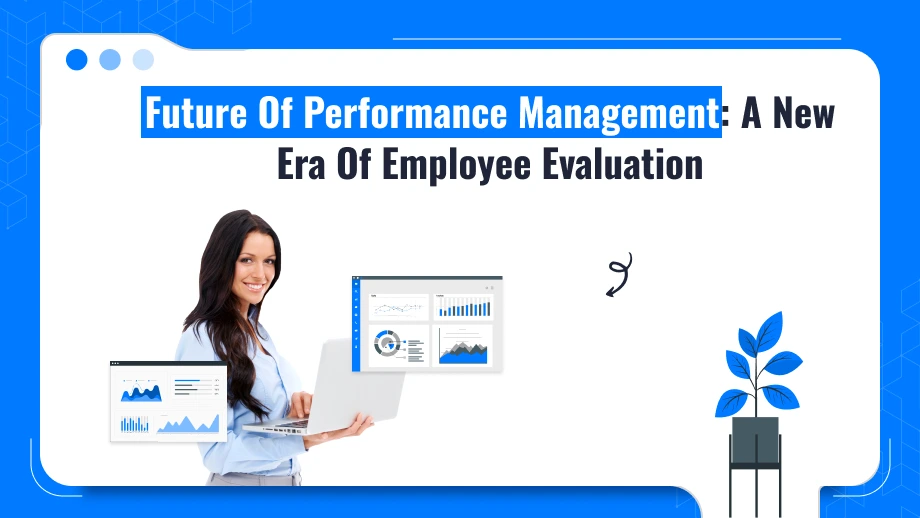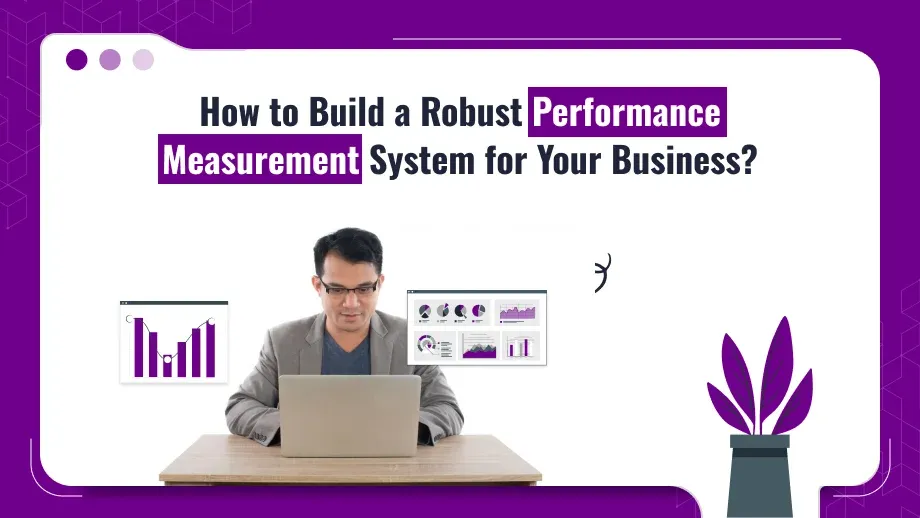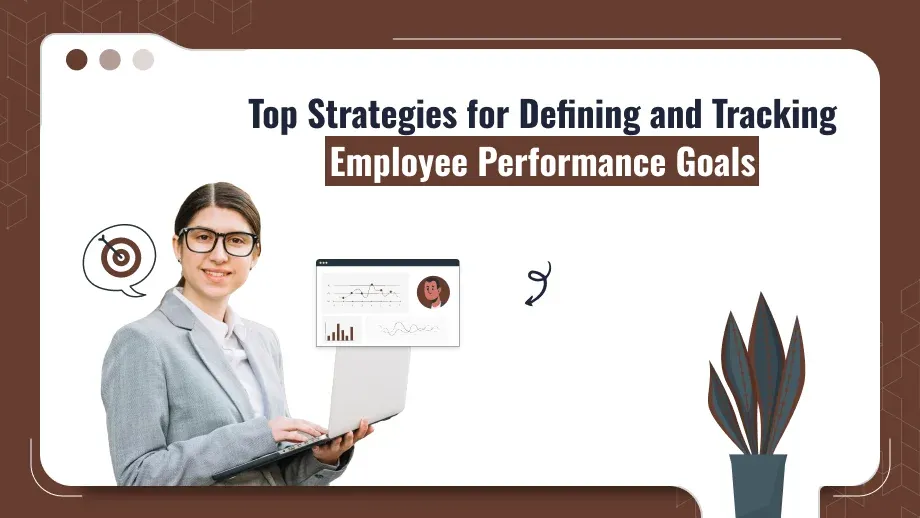
Performance management is constantly evolving thanks to the advancement of technology and changing expectations of employees, as well as the need to adopt more flexible and agile business processes. Traditional systems for future of performance management that depend on annual reviews, as well as strict appraisal methods, are replaced with more fluid continuously-driven, feedback-driven methods. This is crucial for companies to encourage the growth of employees, improve participation, and help align employee results with the company’s goals.
In this article we’ll look at the future of performance management and how companies can make use of the latest tools and techniques to increase employee productivity, attract and retain the best talent and ensure businesses to achieve performance. In addition, we will explore the essential aspects of modern-day management of performance, the process for performance management system, and the importance of appraisal software.
Why Traditional Performance Management No Longer Works
Traditional methods of managing performance has proven to be generally ineffective in today’s hectic working environment. The annual review and the outdated appraisal techniques fail to reflect the performance of employees over time and leave an absence of feedback, development and even participation.
Many factors are responsible for the decline in traditional management of performance:
- Review : feedback is not frequent The annual reviews give feedback every year only once which makes it hard employees to continue making improvement.
- A lack of timely: insights Companies must be flexible and performance appraisals without real-time analytics could slow speed and agility.
- Lack of Development Opportunities: Employers nowadays expect to have opportunities for continual growth. Performance reviews are only yearly and offer nothing as far as continuous growth or development assistance.
- One-Size-Fits : All Approach Performance management typically is based on standard measures which may not be applicable to all employees, which makes it difficult to tailor the process of feedback or develop plans.
What the Future Holds for Performance Management
The future of the field of performance management is focused on constant feedback, insights based on data and a more personalised method of management. The following are the most important patterns and characteristics that are shaping the future of management performance:
1. Continuous Feedback Loops
One of the biggest improvements in the management of performance is shifting from annual reviews towards continuous feedback. The model promotes frequent check-ins between employees and managers with a focus on in-person discussion of performance, continuous growth, and quick problem-solving.
Why Continuous Feedback Is Important:
- Supports: ongoing development Feedback is a constant source of help for employees to discover areas where they can improve all through the year, and not only at the time of an annual evaluation.
- Increases Engagement: Employees are more engaged when they get prompt feedback, appreciation and encouragement to their hard work.
- Affiliation with the Organizational : Goals Feedback is a constant source of help to keep employees on track with changing company goals and objectives. This ensures the work they do contributes to overall successful business goals.
Ready to revolutionize your employee evaluations?
Discover how embracing the future of performance management can drive continuous growth and business success.
2. Performance Management Features Powered by Data Analytics
performance management features tools will be based heavily on analytics based data. Analytics tools that are advanced will gather information from a variety of sources such as the behavior of employees projects’ outcomes as well as team interaction and provide real-time insights regarding how employees perform.
Key Benefits of Data-Driven Performance Management:
- Objective Evaluations: Data can help decrease biases in reviews of performance and makes evaluations more objective and precise.
- Predictive Insights : Predictive analytics can detect potential problems prior to their occurrence, which allows managers to respond and help employees in a timely manner.
- Improved Decision Making: Data can help managers make educated decisions on promotions, bonuses and employees’ development programs on the basis of the performance indicators that are measurable.
3. Goal Alignment and Real-Time Tracking
A key aspect in performance management for the future of performance management is ensuring that personal and group goals to the company’s overall plan of action. Instruments such as OKRs (Objectives as well as Key Results) are gaining popularity and help workers set goals that are measurable and keep track of their progress on a daily basis.
Advantages of Goal Alignment in Performance Management:
- Clare Priorities: Employees have more focus on their objectives when they align with the goals of the business’s strategy.
- Improved accountability: Goal tracking software allows for a clear view of every employee’s performance, and encourages accountability.
- Focus and Motivation Motivation and Focus: Employees feel more focused by knowing the impact their work has on the success of their company.
4. The Role of Employee Appraisal Software
The software for employee appraisal is expected to play an important contribution to the future of management performance. It streamlines the process of evaluating performance which allows HR staff and managers to manage the process of collecting feedback as well as performance tracking and setting goals.
Features of Modern Employee Appraisal Software:
- 360-Degree Feedback: This allows employees to get feedback from their peers, supervisors and direct employees giving a complete appraisal.
- Automated Goal : Tracking helps employees to set and measure their goals in real-time, providing update and progress reports.
- Flexible Evaluation Forms Customizable: These customized evaluation forms can help managers concentrate on the most important indicators of each employee’s performance.
- Performance Analytics: Monitors employees’ performance throughout time. It also highlights patterns and trends that could guide future performance strategies.
5. Agile Performance Management for Remote and Hybrid Workforces
The move to hybrid and remote working models has created the management of future of performance management to new levels. Employers must evaluate their employees according to outcomes, not just time spent at the office. Flexible performance management systems are focusing on evaluations based on outcomes and ensure that employees who work remotely must be held by the same standards like office workers.
Key Strategies for Managing Remote Performance:
- Regular virtual check-ins with managers: Managers are encouraged to hold weekly one-onone meetings with employees from remote locations to discuss their performance, issues as well as development requirements.
- Evaluations based on Outcomes: Concentrate on the results and quality of the work, not just the hours of work, which makes it much easier to judge the work of remote workers fairly.
- Collaboration Tools: Make use of digital tools for the communication and collaboration between in-office and remote workers to ensure that everyone is in touch.
6. AI and Machine Learning in Performance Management
Artificial Intelligence (AI) as well as machine-learning have revolutionized the management of performance by automating processes such as feedback tracking and performance gathering. AI-powered software can analyse large quantities of data to pinpoint patterns in performance, offer instantaneous insights, and forecast the performance of the next.
How AI Is Shaping Performance Management:
- Automated Performance Reviews: AI tools allow for analysis of employee behavior and offer an automated review based on information that comes from a variety of sources.
- Personalized Development Plan: AI can recommend personalized training opportunities for every employee based upon the strengths of each employee and areas that require enhancement.
- Free of bias: AI reduces the potential for bias during performance evaluations by solely focusing on the data and results, thus ensuring impartial and fair assessments.
7. Performance Management of Employees Focused on Development
Performance management systems in the future are expected to place greater focus on the development of employees rather than merely reviewing past performances. The employees will be urged to be involved in their own growth as well as managers who will serve as coaches and provide guidance and encouragement.
Key Development-Focused Strategies:
- Individualized Learning and Development Plans: Every employee is provided with a customized plans for development based upon the information they have collected about their performance and career ambitions.
- Mentorship programs: Managers and the top leaders of companies will coach employees, providing career guidance as well as helping them to develop new capabilities.
- Opportunities to Grow: Constant evaluation and goal-setting can provide employees with the opportunity to improve their future of performance management as well as take on new tasks.
8. Performance Management Process Designed for the Future
The new performance management process will be more fluid customized, fluid, and dynamic. It will be based on periodic feedback, continuous goal-setting, and the focus will be on development instead of assessment. This process also relies on the latest tools such as AI Analytics, analytics, and cloud-based platforms that can increase the efficiency and speed of execution.
Steps in the Future Performance Management Process:
- Set SMART Goals : employees will establish specific goals that are measurable, workable pertinent, time-bound (SMART) objectives that are aligned with the goals of the business.
- Regular feedback and check-ins frequent: one-onone meetings with the managers and employees to discuss issues, performance as well as development.
- Real-time performance tracking: Software such as performance management software or employees’ appraisal systems keep track of progress toward targets in real-time.
- Growth and Development Opportunities : Employees will be urged to become involved in their growth, through individualized training plans as well as mentorship.
- Data-driven Evaluations: Performance information will be analysed for objective and reliable assessments, which will allow fair and honest decisions about promotions, bonuses as well as other reward programs.
Conclusion:
The future of the field of performance management is exciting, thanks to the latest techniques, constant feedback as well as a focus on developing employees that are leading the way. Businesses that adapt to these trends will be able to effectively manage their workforce efficiently, increase employee satisfaction, and achieve the long-term growth of their business.
With the help of modern methods of managing future of performance management like real-time feedback goals aligned, data-driven evaluations and automated appraisal tools, organizations can develop a more fluid customized, effective, and efficient the process of managing performance. While companies navigate their way through the ever-changing workplace by investing in system for managing performance will guarantee employees stay active, enthusiastic and stay in sync with the business’s targets.
Are you prepared to take on the future of performance management ? Making the most of the methods and techniques now will set your company for future success.






